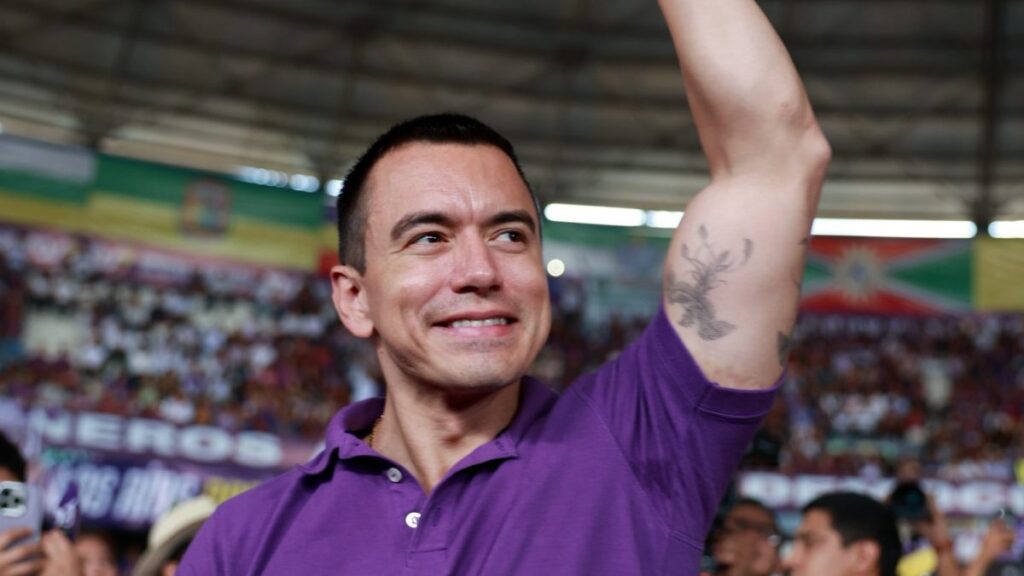Five individuals have been arrested following an alleged assassination attempt targeting Ecuadorian President Daniel Noboa. The attack occurred as the president’s convoy traveled to Cañar province, where he was scheduled to unveil a series of infrastructure projects. According to government officials, Noboa’s motorcade came under assault by a crowd of approximately 500 people throwing rocks and other projectiles.
Following the incident, authorities discovered signs of bullet damage on the president’s vehicle, though Noboa escaped unharmed. The five suspects taken into custody are expected to face charges of terrorism and attempted murder as investigations continue into the motive and organization behind the attack.
This marks the second violent attack on a convoy carrying President Noboa in recent months. In September, a similar incident took place in Imbabura province, where about 350 individuals reportedly ambushed a motorcade transporting the president and diplomats. The assailants were said to have used fireworks, Molotov cocktails, and stones in a chaotic attempt to disrupt the president’s movements.
The recurring attacks have intensified concerns over Ecuador’s deteriorating security situation amid widespread protests and political instability. Much of the unrest stems from the government’s controversial decision to eliminate a long-standing diesel subsidy, part of an austerity plan aimed at reducing public spending. The move has triggered anger among citizens, particularly within the Indigenous community, who argue that the rising cost of fuel will severely impact livelihoods and deepen inequality.
Demonstrations have spread across the country, with protesters blocking key roads and clashing with security forces. Tensions escalated further after an incident last week that left one civilian dead and several others injured during a confrontation between demonstrators and police.
In response to the escalating violence and unrest, the government has declared a state of emergency in ten provinces. Officials say the measure is necessary to restore order and protect public institutions from what they describe as “serious internal unrest.”
Despite the heightened security measures, opposition groups continue to accuse the government of using excessive force to silence dissent. As Ecuador faces growing instability, President Noboa’s administration now finds itself grappling with both internal political pressure and a volatile social climate threatening to undermine national unity and governance.

